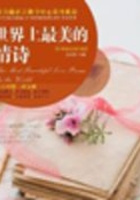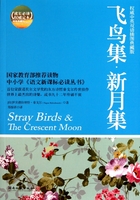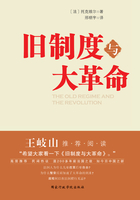Mr. Robert Lynd once remarked of Jane Austen’ s characters: hey are people in whose lives a slight fall of snow is an event. Even at the risk of appearing to this witty and genial critic as another Mr. Woodhouse, I must insist that last night’ s fall of snow here was an event. I was nearly as excited about it this morning as the children, whom I found all peering through the nursery window at the magic outside and chattering as excitedly as if Christmas had suddenly come round again. The fact is, however, that the snow was as strange and enchanting to me as it was to them. It is the first fall we have had here this winter, and last year I was out of the country, broiling in the tropics, during the snowy season, so that it really does seem an age since I saw the ground so fantastically carpeted. It was while I was away last year that I met the three young girls from British Guiana who had just returned from their first visit to England. The two things that had impressed them most were the endless crowds of people in the London street, all strangers(they emphasized this, for they had spent all their lives in a little town where everybody knows everybody), and the snow-covered landscape they awoke to, one morning when they were staying somewhere in Somerset. They were so thrilled and delighted that they flung away any pretence of being demure young ladies and rushed out of the house to run to and fro across the glittering white expanses, happily scattering footmarks on the untrodden surface, just as the children did in the garden this morning.
The first fall of snow is not only an event but it is a magical event. You go to bed in one kind of world and wake up to find yourself in another quite different, and if this is not enchantment, then where is it to be found? The very stealth, the eerie quietness, of the thing makes it more magical. If all the snow fell at once in one shattering crash, awakening us in the middle of the night the event would be robbed of its wonder. But it flutters down, soundless, hour after hour while we are asleep. Outside the closed curtains of the bedroom a vast transformation scene is taking place, just as if a myriad elves and brownies were at work, and we turn and yawn and stretch and know nothing about it. And then, what an extraordinary change it is! It is as if the house you are in had been dropped down in another continent. Even the inside, which has not been touched, seems different, every room appearing smaller and cosier, just as if some power were trying to turn it into a woodcutter’ s hut or a snug log-cabin. Outside, where the garden was yesterday, there is now a white and glistening level, and the village beyond is no longer your own familiar cluster of roofs but a village in an old German fairy-tale. You would not be surprised to learn that all the people there, the spectacled postmistress, the cobbler, the retired school master, and the rest, had suffered a change too and had become queer elvish beings, purveyors of invisible caps and magic shoes. You yourselves do not feel quite the same people you were yesterday. How could you when so much has been changed? There is a curious stir, a little shiver of excitement, troubling the house, not unlike the feeling there is abroad when a journey has to be made. The children, of course, are all excitement but even the adults hang about and talk to one another longer than usual before settling down to the day’ s work. Nobody can resist the windows. It is like being on board a ship.
When I got up this morning the world was a chilled hollow of dead white and faint blues. The light that came through the windows was very queer, and it contrived to make the familiar business of splashing and shaving and brushing and dressing very queer too. Then the sun came out, and by the time I had sat down to breakfast. It was shining bravely and flushing the snow with delicate pinks. The dining room window had been transformed into a lovely Japanese print. The little plum-tree outside, with the faintly flushed snow lining its boughs and artfully disposed along its trunk, stood in full sunlight. An hour or two later everything was a cold glitter of white and blue. The world had completely changed again. The little Japanese prints had all vanished. I looked out of my study window, over the garden, the meadow, to the low hills beyond, and the ground was one long glare, the sky was steely, and all the trees so many black and sinister shapes. There was indeed something curiously sinister about the whole prospect. It was as if our kindly countryside, close to the very heart of England, had been turned into a cruel steppe. At any moment, it seemed, a body of horsemen might be seen breaking out from the black copse, so many instruments of tyranny might be heard and some distant patch of snow be reddened. It was that kind of landscape.
Now it has changed again. The glare has gone and no touch of the sinister remains. But the snow is falling heavily, in great soft flakes, so that you can hardly see across the shallow valley, and the roofs are thick and the trees all bending, and the weathercock of the village church, still to be seen through the grey loaded air, has become some creature out of Hans Andersen. From my study, which is part from the house and faces it, I can see the children flattening their noses against the nursery window, and there is running through my head a jangle of rhyme I used to repeat when I was a child and flattened my nose against the cold window watching the falling snow:
Snow, snow faster:
White alabaster!
Killing geese in Scotland,
Sending feathers here!














